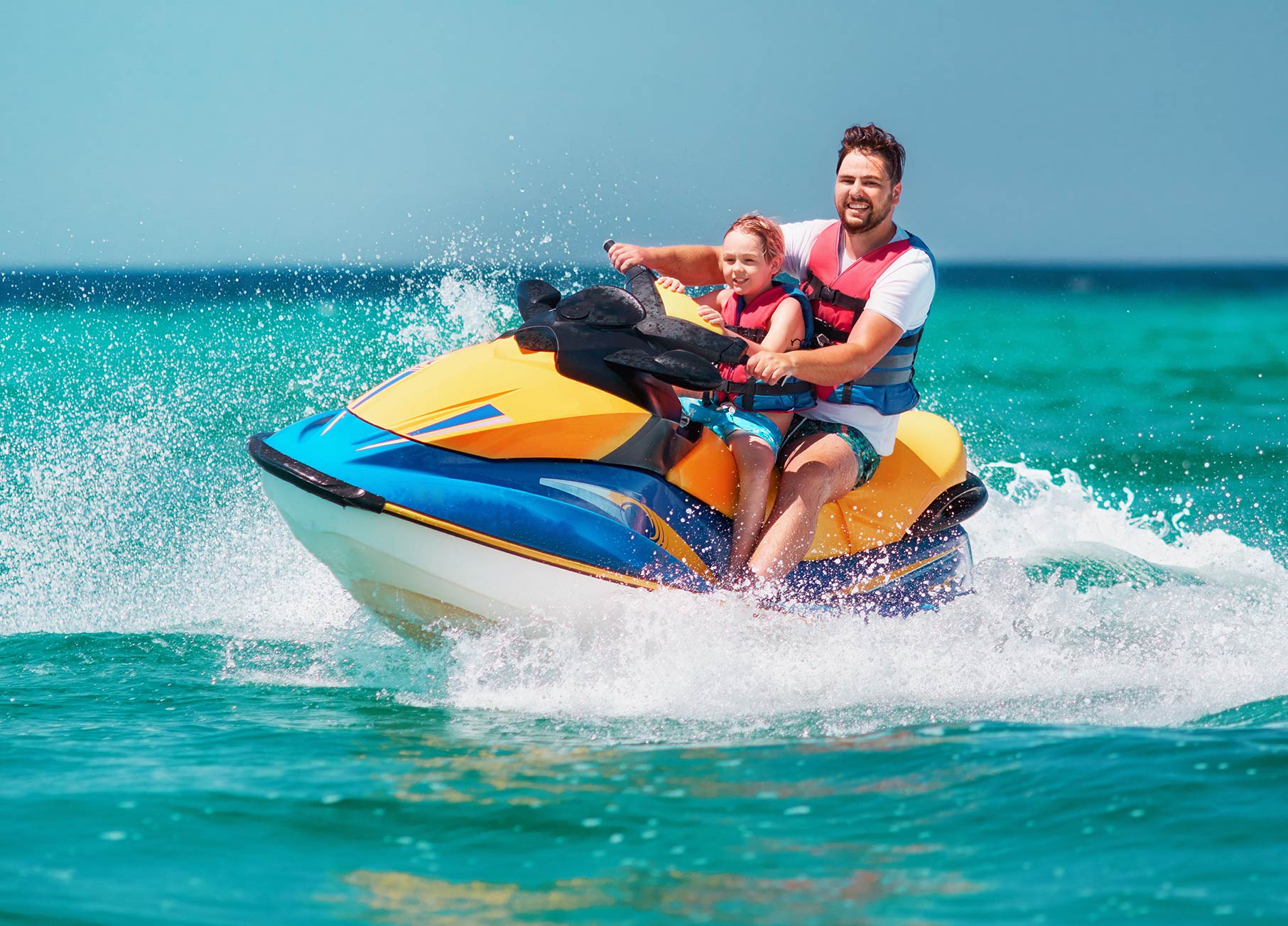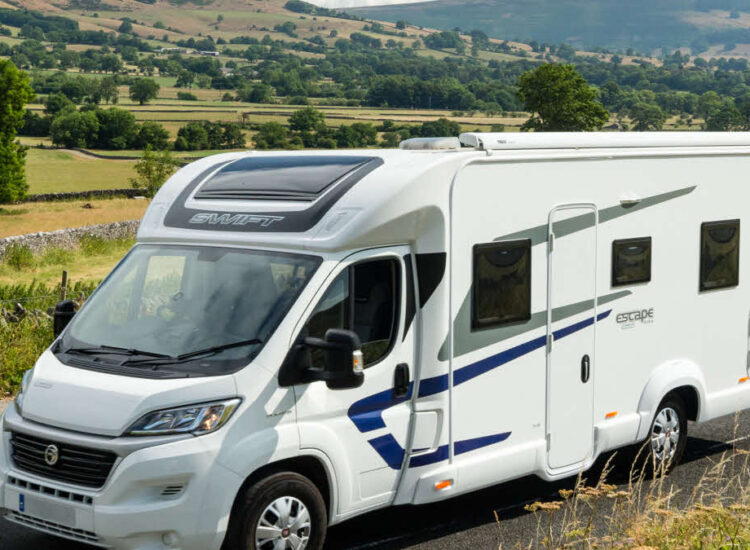Owning a personal watercraft (PWC), such as a Jet Ski or WaveRunner, offers thrilling adventures on the water, but it also comes with risks. Personal watercraft insurance is essential for safeguarding your investment against accidents, theft, and liability claims. This comprehensive, SEO-optimized guide explores everything you need to know about personal watercraft insurance in 2025, providing actionable strategies to secure the right coverage while targeting this high-value keyword.
Toc
- 1. What is Personal Watercraft Insurance?
- 2. Why is Personal Watercraft Insurance Important?
- 3. 1. Understand the Types of Personal Watercraft Insurance Coverage
- 4. 2. Assess Your PWC’s Value and Usage
- 5. 3. Compare Insurance Providers for the Best Rates
- 6. Related articles 01:
- 7. 4. Leverage Discounts to Lower Premiums
- 8. 5. Review State and Marina Requirements
- 9. 6. Consider Coverage for Seasonal or Stored PWCs
- 10. 7. Maintain a Safe Operating Record
- 11. Related articles 02:
- 12. 8. Use Online Tools to Get Quotes
- 13. 9. Work with a Marine Insurance Specialist
- 14. 10. Regularly Review and Update Your Policy
- 15. Common Mistakes to Avoid with Personal Watercraft Insurance
- 16. Conclusion
What is Personal Watercraft Insurance?

Personal watercraft insurance is a specialized insurance policy designed to protect PWCs, including Jet Skis, Sea-Doos, and other small recreational water vehicles, from financial losses due to accidents, damage, theft, or liability. Unlike standard boat insurance, PWC insurance is tailored to the unique risks of high-speed, maneuverable watercraft, covering both the vehicle and its operator in various scenarios.
Why is Personal Watercraft Insurance Important?
Investing in personal watercraft insurance is critical for PWC owners in 2025. Here’s why it’s a must-have:
-
Financial Protection: Covers repair or replacement costs for your PWC in case of accidents, vandalism, or natural disasters.
-
Liability Coverage: Protects you from financial responsibility if you cause injury or property damage while operating your PWC.
-
Peace of Mind: Ensures you can enjoy your water adventures without worrying about unexpected expenses.
-
Legal Requirements: Some states or marinas require liability insurance for PWCs, making coverage mandatory.
-
Customizable Options: Offers tailored policies to suit your PWC usage, whether you’re a weekend rider or a frequent adventurer.
Let’s dive into the top strategies and steps to secure the best personal watercraft insurance for your needs in 2025.
1. Understand the Types of Personal Watercraft Insurance Coverage
The first step in securing personal watercraft insurance is understanding the types of coverage available. Different policies offer varying levels of protection, so knowing your options is key.
-
How to Implement:
-
Liability Coverage: Covers bodily injury and property damage you cause to others while operating your PWC. Required in many states.
-
Collision Coverage: Pays for repairs to your PWC after a collision with another watercraft or object.
-
Comprehensive Coverage: Protects against non-collision events like theft, vandalism, or storm damage.
-
Uninsured/Underinsured Boater Coverage: Covers injuries or damages caused by another operator without sufficient insurance.
-
Towing and Assistance: Provides coverage for on-water towing, fuel delivery, or emergency services.
-
Personal Property Coverage: Protects gear like life jackets or water sports equipment stored on your PWC.
-
-
Benefits: Helps you choose a policy that matches your PWC usage and lifestyle.
-
Pro Tip: Create content targeting personal watercraft insurance coverage types to attract PWC owners researching policy options.
Understanding coverage types ensures you select a policy that meets your specific needs.
2. Assess Your PWC’s Value and Usage
The value and usage of your personal watercraft significantly impact your insurance needs. Factors like the PWC’s make, model, age, and how often you use it determine your coverage requirements and premiums.
-
How to Implement:
-
Determine your PWC’s current market value using tools like NADA Guides or dealer appraisals.
-
Evaluate whether you use your PWC occasionally, seasonally, or year-round to choose appropriate coverage.
-
Consider add-ons like accessory coverage for aftermarket upgrades or salvage assistance for recovery after accidents.
-
-
Benefits: Ensures you’re neither underinsured nor overpaying for unnecessary coverage.
-
Pro Tip: Optimize blog posts with keywords like personal watercraft insurance for Jet Skis to target specific PWC owners.
Tailoring your policy to your PWC’s value and usage saves money and ensures adequate protection.
3. Compare Insurance Providers for the Best Rates
Not all personal watercraft insurance providers offer the same rates or coverage options. Comparing multiple insurers helps you find the best policy at a competitive price.
-
How to Implement:
-
Research reputable PWC insurance providers like Progressive, Geico, State Farm, or Markel.
-
Request quotes from at least three insurers, providing details about your PWC, usage, and operator history.
-
Compare premiums, deductibles, coverage limits, and discounts (e.g., for safe boating courses or bundling policies).
-
-
Benefits: Saves money and ensures you get comprehensive coverage tailored to your needs.
-
Pro Tip: Create content comparing personal watercraft insurance providers to attract PWC owners shopping for policies.
Shopping around is essential for finding cost-effective and reliable insurance.
4. Leverage Discounts to Lower Premiums
Many personal watercraft insurance providers offer discounts that can significantly reduce your premiums. Taking advantage of these savings opportunities is a smart strategy.
-
How to Implement:
-
Ask about discounts for completing a boater safety course approved by the U.S. Coast Guard or state authorities.
-
Inquire about savings for bundling PWC insurance with auto, home, or boat policies.
-
Look for discounts for safe operation records, storing your PWC securely, or paying your premium in full upfront.
-
-
Benefits: Lowers insurance costs without compromising coverage quality.
-
Pro Tip: Optimize guides on “How to Save on Personal Watercraft Insurance” with keywords like personal watercraft insurance discounts to attract budget-conscious PWC owners.
Discounts make personal watercraft insurance more affordable while maintaining robust protection.
5. Review State and Marina Requirements
Insurance requirements for PWCs vary by state, and marinas or waterways may impose additional conditions. Understanding these requirements ensures compliance and adequate coverage.
-
How to Implement:
-
Check your state’s minimum liability insurance requirements for PWCs, as some states mandate coverage similar to auto insurance.
-
Contact marinas or waterways where you operate your PWC to confirm their insurance requirements, such as proof of liability coverage.
-
Ensure your policy meets both state and marina standards before hitting the water.
-
-
Benefits: Avoids legal penalties and maintains access to restricted waterways.
-
Pro Tip: Create content on personal watercraft insurance state requirements to target PWC owners researching local regulations.
Compliance with state and marina rules is critical for legal and operational security.
6. Consider Coverage for Seasonal or Stored PWCs
Many PWC owners use their watercraft seasonally and store them during the off-season. Personal watercraft insurance can be tailored to account for storage periods, reducing costs while maintaining protection.
-
How to Implement:
-
Choose a policy with lay-up coverage, which reduces premiums during months when your PWC is not in use.
-
Ensure comprehensive coverage remains active during storage to protect against theft, fire, or vandalism.
-
Notify your insurer about storage locations (e.g., garage or marina) to adjust coverage as needed.
-
-
Benefits: Saves money during off-season months while ensuring year-round protection.
-
Pro Tip: Optimize blog posts with keywords like personal watercraft insurance for seasonal use to attract seasonal PWC owners.
Seasonal coverage options make personal watercraft insurance cost-effective for part-time users.
7. Maintain a Safe Operating Record

Your operating history plays a significant role in personal watercraft insurance premiums. A clean record can lead to lower rates and better coverage options.
-
How to Implement:
-
Practice safe PWC operation, such as following speed limits, avoiding crowded areas, and wearing life jackets.
-
Complete a boater safety course to improve skills and qualify for discounts.
-
Regularly review your operator record to ensure accuracy and address any errors.
-
-
Benefits: Reduces premiums and demonstrates reliability to insurers.
-
Pro Tip: Create content on “Safe PWC Operation for Insurance Savings” to target safety-conscious PWC owners.
1. https://duocphamvietduc.com.vn/motor-home-insurance-your-guide-to-protecting-your-rv-in-2025/
4. https://duocphamvietduc.com.vn/mmoga-college-loans-your-guide-to-financing-higher-education-in-2025/
5. https://duocphamvietduc.com.vn/mmoga-rv-insurance-your-essential-companion-on-every-adventure-road/
A safe operating record is a cost-effective way to secure affordable insurance.
8. Use Online Tools to Get Quotes
Many insurers offer online tools that make it easy to get personal watercraft insurance quotes quickly. These platforms streamline the process and allow you to compare options efficiently.
-
How to Implement:
-
Visit insurer websites like Progressive, Allstate, or BoatUS to access online quote tools.
-
Input details about your PWC, usage, and operator history to receive instant estimates.
-
Save quotes and follow up with insurers to finalize your policy.
-
-
Benefits: Saves time, provides instant feedback, and simplifies comparisons.
-
Pro Tip: Optimize landing pages with keywords like personal watercraft insurance online quotes to attract tech-savvy PWC owners.
Online tools make securing personal watercraft insurance convenient and accessible.
9. Work with a Marine Insurance Specialist
An insurance agent specializing in marine or PWC insurance can provide expert guidance when choosing personal watercraft insurance. Their expertise ensures you get a policy tailored to your needs.
-
How to Implement:
-
Find a marine insurance specialist through referrals or organizations like the National Marine Lenders Association.
-
Discuss your PWC usage, waterways, and budget to identify the best coverage options.
-
Review the agent’s recommendations and ask about discounts or add-ons.
-
-
Benefits: Offers personalized advice, saves time, and ensures comprehensive coverage.
-
Pro Tip: Create content on “Choosing a PWC Insurance Specialist” with keywords like personal watercraft insurance agent to attract PWC owners seeking expert help.
A specialist simplifies the process and enhances policy quality.
10. Regularly Review and Update Your Policy
Your personal watercraft insurance needs may change over time due to factors like PWC upgrades, changes in usage, or new regulations. Regularly reviewing your policy ensures it remains relevant.
-
How to Implement:
-
Schedule an annual policy review with your insurer or agent to assess coverage and premiums.
-
Update your policy to reflect PWC modifications, changes in usage, or new storage arrangements.
-
Shop around periodically to ensure you’re still getting competitive rates.
-
-
Benefits: Keeps coverage aligned with your needs and prevents gaps in protection.
-
Pro Tip: Optimize content on “Updating Your Personal Watercraft Insurance” to target experienced PWC owners.
Regular reviews maintain the effectiveness of your personal watercraft insurance policy.
Common Mistakes to Avoid with Personal Watercraft Insurance
To secure the best personal watercraft insurance, avoid these pitfalls:
-
Underinsuring Your PWC: Skimping on coverage can leave you vulnerable to significant losses.
-
Not Disclosing Usage: Failing to inform insurers about frequent or commercial use can void your policy.
-
Ignoring Add-Ons: Skipping protections like towing assistance may leave gaps in coverage.
-
Choosing Based on Price Alone: Low premiums may come with inadequate coverage or high deductibles.
-
Forgetting to Update Policies: Outdated policies may not cover new upgrades or changes in usage.
Conclusion
Securing personal watercraft insurance is essential for protecting your PWC and enjoying worry-free adventures on the water in 2025. By understanding coverage types, comparing providers, leveraging discounts, and tailoring your policy to your PWC lifestyle, you can ensure comprehensive protection at a competitive price. Avoid common mistakes, use online tools for convenience, and regularly review your policy to stay covered. Optimize your strategy with keywords like personal watercraft insurance to attract PWC owners searching for reliable coverage.
Ready to ride the waves with confidence? Start exploring personal watercraft insurance options today and safeguard your aquatic adventures!





